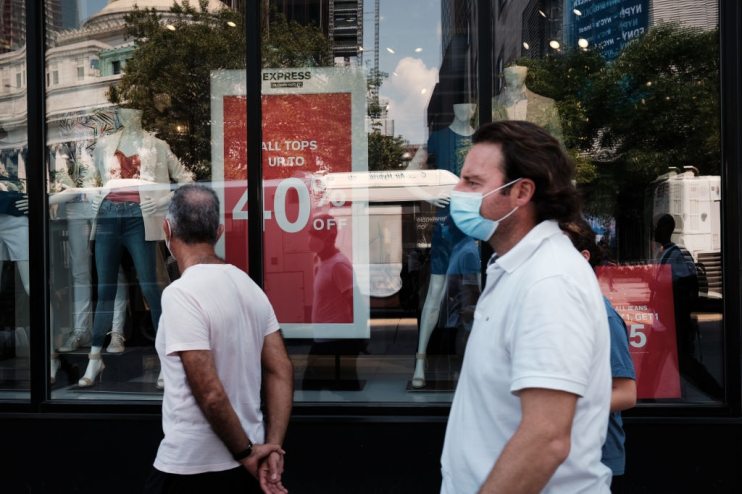UK inflation drops to two per cent in July

Inflation in the UK dropped in July, driven by sharp falls in prices for clothing and footwear as retailers sought to stimulate demand by slashing prices amid the traditional summer sale season, according to official figures released today.
The Office for National Statistics said prices rose two per cent over the last year, down from 2.5 per cent annually in June.
Economists polled by Reuters had expected the annual rate to reach 2.3 per cent in July.
The reduction in the annual consumer prices index inflation rate has been mainly driven by clothing retailers cutting prices for garments amid summer sales and a sharp reduction in prices for recreation and cultural activities.
Last year, clothes retailers held off from embarking on their usual discounting over the summer months. Clothes prices fell two per cent between June and July this year.
Jonathan Athow, deputy national statistician for economic statistics at the ONS, said: “Inflation fell back in July across a broad range of goods and services, including clothing, which decreased with summer sales returning after the pandemic hit the sector last year.”
Price falls for recreation and culture put the greatest downward pressure on the headline inflation rate, likely triggered by the Covid crisis “changing the timing of demand,” the ONS said.
Sharp price rises at the pump were the main upward contributor to inflation in July, triggered by a rebound in oil prices from the depths of the Covid crisis. Average petrol prices reached 132.6p last month compared to 111.4p in July 2020, while fuel costs have surged 19.1 per cent annually.
Martin Beck, chief economic adviser to the EY Item Club, said: “July’s data is likely to represent brief respite from the upward movement in inflation rates.”

The upward contribution of transport costs was the largest since November 2011.
Prices for second hand cars have soared since the onset of the pandemic, caused by consumers seeking ways to avoid using public transport to reduce the risk of Covid transmission. A global shortage of semi conductors has also limited supply of new vehicles, prompting buyers to seek second hand substitutes.
The figures will provide a degree of relief for the Bank of England which has come under intense pressure to tweak its ultra-loose monetary policy stance to tame inflation.
Inflation is now running exactly at the Bank’s target, indicating that it may adopt a wait and see approach to winding down the wave of monetary stimulus measures unleashed in response to the Covid crisis.
The Bank has shifted its criteria for winding down its ultra-accommodative monetary measures, altering the rate threshold at which it would start to curb its bond buying programme to 0.5 per cent from 1.5 per cent.
The lower than expected inflation rate also suggests that sharp prices rises could be transitory and will normalise once base effects and bottle necks in supply chains clear, a point the Bank of England has consistently reiterated.
However, the Old Lady recently predicted in its Monetary Policy Report that inflation could reach four per cent this year, double its target.
Slowdown is just ‘calm before the storm’
Experts have warned July’s slowdown is unlikely to extend into the coming months.
James Smith, developed markets economist at ING, said: “UK inflation took a bit more of a tumble than expected in July – but this feels remarkably like the calm before the storm.”
Beck added: “August will see base effects push annual inflation up again, with last August having seen both the VAT cut for the hospitality sector and the Eat Out to Help Out scheme.”
“Indeed, it could be possible that the annual CPI rate will rise by as much as one percentage point between July and August.”
Meanwhile, Yael Selfin, chief economist at KPMG UK, stressed that the “fall in year-on-year inflation last month masks the strength of inflationary pressures currently within the UK economy.”
“We expect inflation to accelerate further during the rest of this year, rising significantly above the Bank of England’s 2% target, as supply chains remain under strain faced with a strong rebound in demand,” she added.
Capital Economics expect inflation to run hotter than the Bank of England’s four per cent forecast.
However, the scale of spare capacity in the UK economy could help temper price rises, according to Debapratim De, senior economist at Deloitte.
“With millions still on furlough in the UK and firms operating with greater spare capacity than before the pandemic, price pressures may well be transitory.”